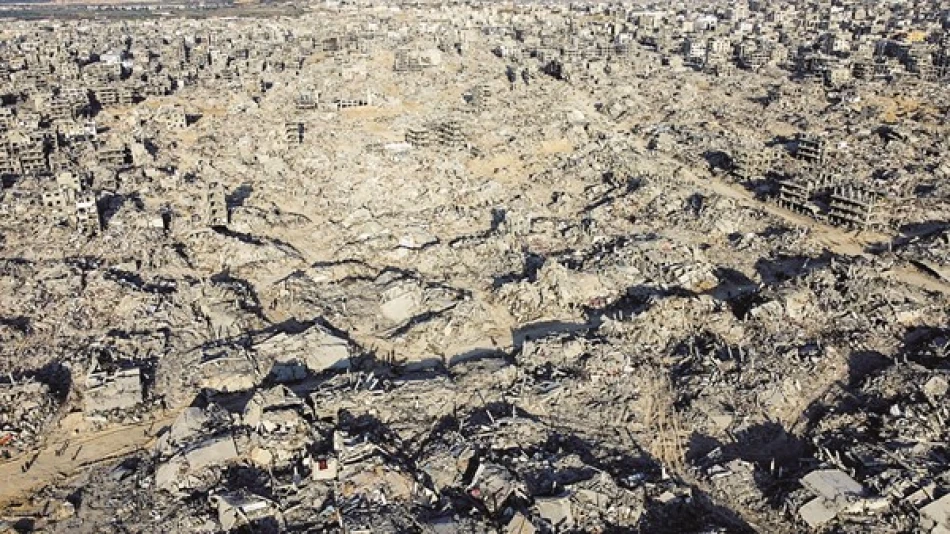
Trump Endorses Israel's Complete Occupation of Gaza, Sparking Controversy
Trump Signals Hands-Off Approach as Netanyahu Reportedly Plans Full Gaza Occupation
President Donald Trump has indicated he would leave decisions about a complete occupation of Gaza entirely to Israel, showing little concern over reports that Prime Minister Benjamin Netanyahu is preparing to push for a full invasion of the territory. The stance marks a significant diplomatic shift that could reshape Middle East dynamics and test international responses to escalating military action.
Trump's Non-Committal Response Raises Strategic Questions
When pressed by journalists about his support for potential Israeli occupation of Gaza, Trump offered a measured but telling response: "I don't know what the proposal is. I know we're there now to feed people." His comments, reported by CNN, suggest a deliberate strategy of maintaining plausible distance while effectively green-lighting Israeli military decisions.
Trump concluded his remarks by emphasizing this hands-off approach: "As for the rest of it, I can't be definitive about that. It's largely up to Israel." This framing allows the administration to avoid direct accountability while signaling tacit approval for expanded military operations.
Netanyahu's Cabinet Push Faces Internal Opposition
According to Israeli media reports confirmed by informed sources, Netanyahu plans to convene the Israeli security cabinet to advocate for a comprehensive "invasion" of Gaza. This represents a potential escalation beyond current military operations, moving toward permanent territorial control.
However, the proposal faces significant domestic resistance. A group of Israeli soldiers' mothers has publicly criticized these plans, arguing they would prove "devastating for both hostages and soldiers." Their opposition highlights the complex calculus facing Israeli leadership, where military objectives must be weighed against human costs and public sentiment.
International Implications and Historical Context
Trump's position echoes historical patterns of U.S. support for Israeli military decisions, but the explicit nature of his deference is notable. Previous administrations typically maintained more diplomatic language while providing similar backing, suggesting either a strategic shift or Trump's characteristic directness in foreign policy communication.
The Palestinian Authority has called for international intervention, recognizing that Trump's stance effectively removes the primary diplomatic constraint on Israeli military planning. This dynamic could accelerate regional tensions and complicate relationships with Arab allies who have normalized relations with Israel in recent years.
Humanitarian Concerns Amid Military Calculations
Trump's emphasis on humanitarian aid—"we're there now to feed people"—attempts to balance military support with acknowledgment of civilian suffering. However, this approach raises questions about how humanitarian objectives align with potential occupation policies.
A full occupation would likely complicate aid distribution and create new governance challenges, potentially undermining the humanitarian goals Trump claims to prioritize. This tension between stated humanitarian concerns and military backing represents a key vulnerability in the administration's position.
Strategic Ramifications for Regional Stability
The prospect of permanent Israeli control over Gaza would fundamentally alter Middle Eastern geopolitics. Such a move could destabilize recent normalization agreements between Israel and Arab nations, potentially forcing regional powers to choose between maintaining Israeli relationships and addressing domestic public opinion.
For international observers, Trump's approach signals a return to the more explicitly pro-Israeli policies of his previous term, but with potentially greater consequences given the current regional dynamics and humanitarian crisis. The administration's willingness to defer completely to Israeli decision-making represents a significant diplomatic gamble with far-reaching implications.
Most Viewed News

 Layla Al Mansoori
Layla Al Mansoori






